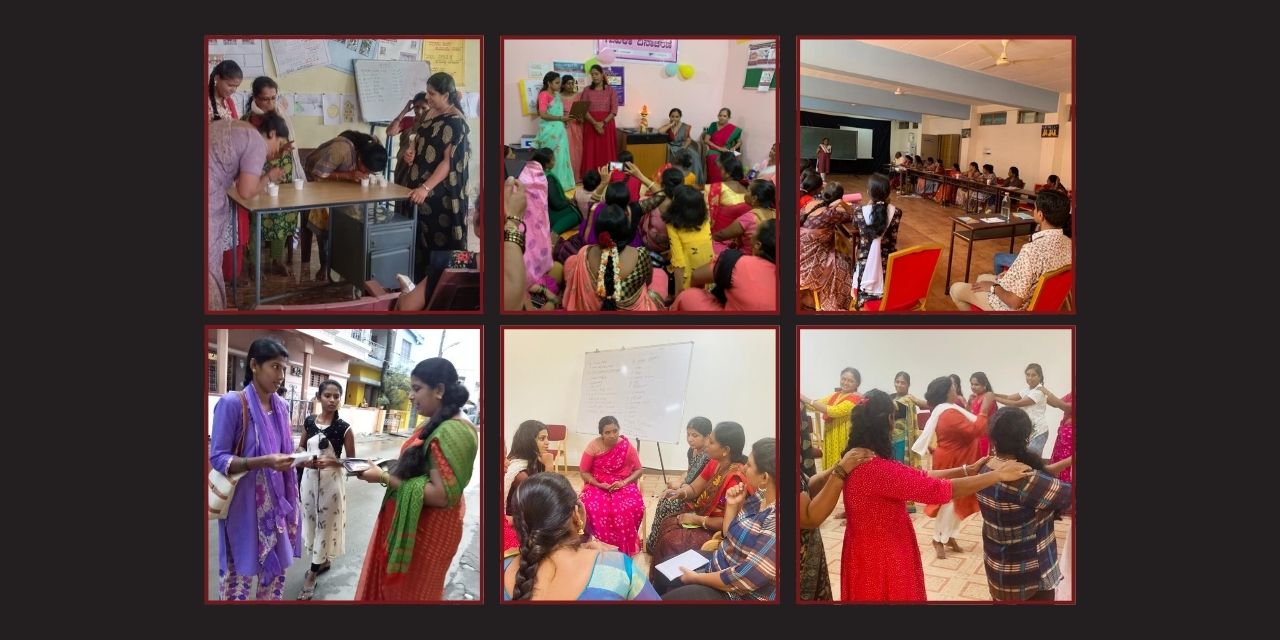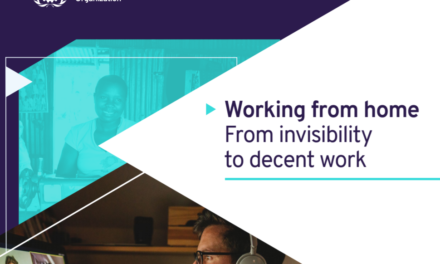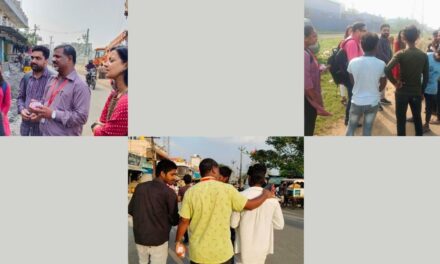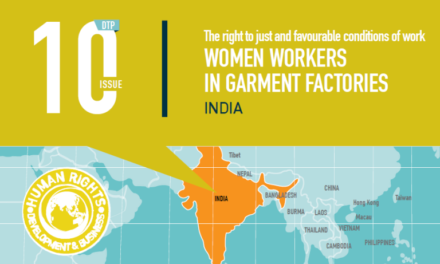A Cividep-Azim Premji Foundation Collaboration Has Enabled 36 Women Workers To Stand Up For Their Rights
For Radha, a single mom of two in Bengaluru, working as a tailor in the garment industry for the past 14 years has been a constant struggle. Long hours, low wages, and unfair practices were the norm. “There is this whole idea,” Radha says with a wry laugh, “that single mothers can’t raise their voices, and have to be submissive.”
But Radha, like countless other garment workers, wasn’t ready to accept the status quo. A three-year programme known as Amplifying Workers’ Voice, by Cividep India, supported by the Azim Premji Foundation, became a turning point. It focussed on building workers’ collective leadership and agency. This was in order to improve their bargaining power, and support them in their demand for decent working conditions, access to basic rights like equal pay, and healthcare. At the end of three years, there are 36 worker leaders from Bengaluru, who have been mentored by Cividep India and its partner NGOs. More than 600 garment workers were trained in labour rights (such as the laws related to wages, social security, workplace health & safety, factory committees, sexual harassment at the workplace and so on), as well as on communication and leadership skills; so they feel confident of speaking up for their rights.
Initial Challenges
This didn’t happen overnight. A Cividep team first set up Worker Resource Centers (WRCs) in collaboration with NGOs and worker collectives such as Sadhana, Samruddhi, Munnade, and Garment Labour Union (GLU). Radha was already familiar with GLU, having attended some of their training sessions during the pandemic. However, it was when she connected with Samruddhi, an NGO located closer to her house in Kanakpura in rural Bengaluru, that things truly clicked. “These sessions were more like group activities,” Radha explains, “and suddenly, I understood so much more beyond a worker’s basic rights and entitlements.”
Empowered with knowledge and a newfound sense of courage, Shobha started noticing things differently. The factory’s unrealistic production targets of 150 pieces an hour, for instance. “We can barely manage 70-80!” she exclaims. “But now, at least we can argue with the supervisor. They used to scare us by sending naysayers to the HR room. Earlier workers used to cry, but now we are not afraid to answer back.” Now Radha and her colleagues know that if they do face any trouble, they can rely on the WRC staff and their consultant lawyer.
Increased Confidence
This confidence extends beyond production targets. Radha describes how workers, who used to silently accept insect-ridden canteen food, now dare to demand better. “There is some variation in the menu now,” she says with a hint of satisfaction.
Garment workers Pallavi and Supriya, too, have benefitted from the training sessions. Pallavi actively seeks out training opportunities, while Sunanda, a worker who faced a sudden factory closure, learned about her rights and how to access support through the WRCs. Priyanka, a garment worker-turned-field officer with Sadhana, shares a similar sentiment. “I never knew about the statutory Factory Committees where workers can report grievances. I wish I knew about them when I was a worker,” she says.
Building Trust
However, building this level of trust among workers was not easy. Education and awareness building went hand-in-hand with fostering a sense of community. “Earlier, building trust with workers was tough. But the training sessions helped us connect at a deeper level,” says Dakshayani, another field officer at Sadhana. Now, through exclusive WhatsApp groups, the field staff share not just workers’ rights information, but also helpful videos and resources with the workers. In addition, the WRCs have become vital support systems for the entire community – all four partner organisations recently organised summer camps for workers’ children, and they attracted several children.
Over the years, Radha has become a resource for her fellow workers, spreading the word about Samruddhi and the support it offers. “The factory workers are like family now,” she says warmly. “They come to me with their issues, and I tell them to reach out to the WRC for problems ranging from issues related to property, and children’s education, apart from workplace issues.”
This story is not unique. Ganga, a former garment worker who recently rose to the position of Assistant Supervisor, continues to participate in these training sessions. She credits these for helping her develop patience and understanding towards the workers whom she now supervises. She advocates for their rights and tries to grant fair targets to her factory colleagues.
Apart from creating worker leaders and training garment workers, Cividep and its partners have been able to improve the confidence of workers in other ways. For instance, more than 500 workers have availed mental health counselling sessions to deal with issues from domestic violence to workplace violations. Pramod Kumar, former Project Coordinator at Cividep India, who has been at the helm of this project, highlights a key challenge that the project addressed: “Fear can hinder workers from reporting violations. This project has built solidarity among workers and fostered trust in civil society organisations, creating a support system that is absent in their factories and homes.”
(Names of workers have been changed to protect identities)






